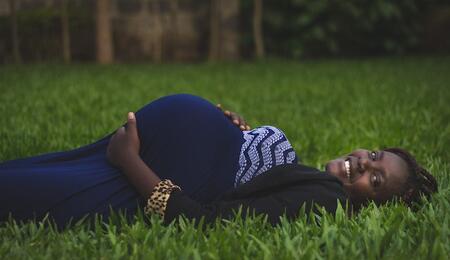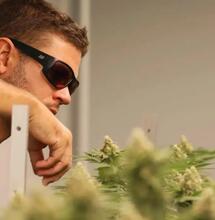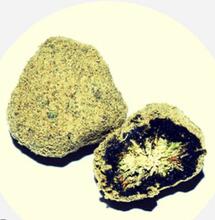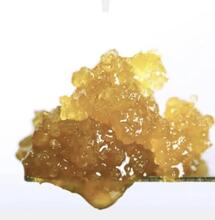Cannabis and Pregnancy

Researchers have known since the 80s that THC can cross the placenta and reach an unborn baby. It has also been found that THC is present in breast milk for up to six days after use. Concerns about cannabis's health effects during pregnancy and lactation exist mainly because of this.
An excellent summary of the health effects of cannabis is the report from the National Academies of Sciences, Engineering, and Medicine. More than a dozen experts reviewed over 10,000 studies published between 1999 and 2016 and uncovered pregnancy-related problems.
In particular, the most vital link they found showed that unborn babies exposed to cannabis appeared to have lower birth weights. The birth weight findings were compatible with the effects of cigarette smoking on fetuses. It's not clear, however, whether this was an effect of cannabis or smoking. Smoking any substance, not just cannabis, increases the levels of carbon monoxide in the blood. This reduces blood's oxygen-carrying capacity and means that not as much reaches the baby.
The NAS report examined whether the babies of moms who used cannabis are more likely to need medical attention and experience sudden infant death syndrome or developmental and cognitive challenges later in life.
Limited research indicates a correlation between developmental delays or problems with impulse control and attention. There's adequate proof of a link between prenatal cannabis use and lower birth weight. This is enough to make health professionals wary.
There are reasons why research on cannabis in pregnancy is so limited and inconclusive. Most of the evidence available on weed's health impact on pregnant comes from research on smoking. Mothers and unborn children originate from research on smoking tobacco. This research no longer fits the mould as well, as there are now so many other ingestion methods for cannabis, such as edibles, oils, and vape devices.
The THC content in weed has also risen dramatically in recent years, which makes it riskier to use while pregnant. Much research doesn't reflect the current cannabis landscape or the THC levels in today's weed.
The studies out there also suffer due to their size. They are often small studies that do not hold enough statistical power to detect relationships accurately. More so, they often depend on self-reported data, which is deficient in substance use. Much of the research also doesn't consider all the non-weed variables that could bias the result.
Finally, as cannabis is still illegal in many countries, researchers must jump through all hoops to run studies, making extensive studies hard to carry out.
Suppose you are still unsure or use cannabis medicinally for another condition. In that case, it is best to consult your doctor before deciding what is best for you and your baby. With so much still uncertain, the safest suggestion for pregnant women is to avoid recreational cannabis use in the same way you would avoid alcohol, tobacco or other drugs during pregnancy.











